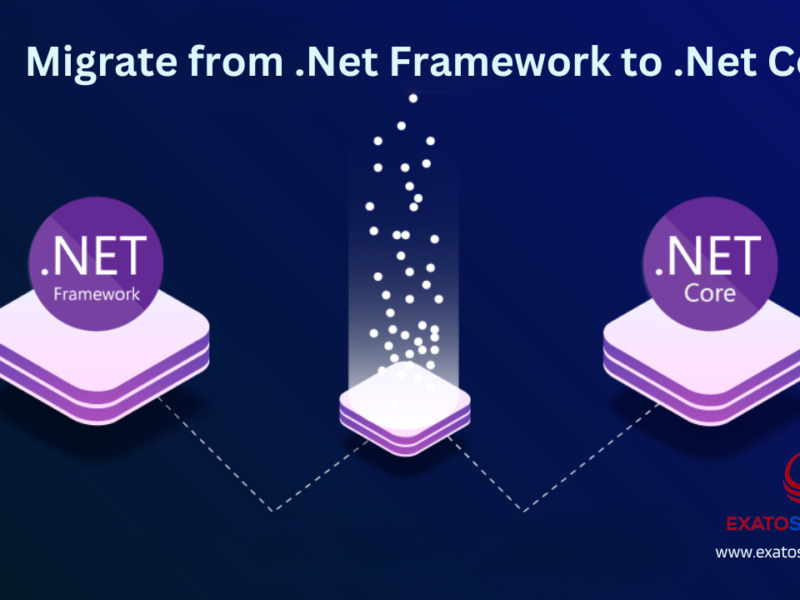ERP is used to describe Enterprise Resource Planning, which is software that helps companies better manage their operations. ERP software includes the ability to integrate data from multiple systems, automate processes, and optimize operations through advanced analytics. While most technology companies can handle regular IT service requests internally, it’s critical for most businesses to hire specialized consulting services in order to make the most of their ERP experience.
What are the benefits of hiring an ERP consulting firm?
Here are 7 benefits of hiring an ERP consulting firm:
- Improves business performance through data management and optimization. If your company relies on different systems that must be connected with one another, you’ll need an experienced consultant who can help you get the job configured, connected, and optimized. A business that doesn’t properly manage its data, risks losing valuable insights into its operations.
- When you partner with an ERP consulting firm, you get a dedicated team that can handle both your business and software development implementation. This allows you to focus on your core business while the experts at the company look after the details of your digital transformation, implementing a robust ERP system that can provide a foundation for a strong digital presence.
- The experts at the consulting firm have deep knowledge of both systems and can manage your transition from one to another with precision, offering expertise on issues ranging from complex integration to data conversion. This means you don’t have to waste time trying to figure it out on your own.
- Besides offering specialized consultancy, the experts at an ERP consultancy firm will also leverage their experience in helping other businesses successfully implement ERP software. This means they’ll be able to take an abundance of knowledge about what works and what doesn’t, helping you avoid pitfalls and identify ways to improve your setup.
- Expertise in ERP Implementation – An ERP consulting group usually has a background in business technology or management information systems. This supports their expertise in knowing how to design an ERP solution for unique business models. Working with an ERP consulting firm means there are specialized types of consultants for each step of the implementation.
An ERP consultant generally has the following skills:
Business experience
Working with other businesses to determine how best to implement an ERP system and what kind of business processes to include.
Systems development
Experience with platforms and languages used by software vendors and developers. For example, SAP uses ABAP and Java, while Oracle uses PL/SQL and Java. The consultant will need experience with these technologies as well as skills such as the ability to program using those languages, as well as knowledge of how to install and configure those programs.
Database management
Knowledge of how databases work, including relational databases such as Oracle and SQL Server, as well as specialized products such as SAP’s SAPDB database.
A well-rounded ERP consulting firm gives you a team of experts in the different fields needed to install your software. This includes financial auditors, systems architects, business analysts, and project managers.
An ERP consulting group usually has a background in business technology or management information systems. This supports their expertise in knowing how to design an ERP solution for unique business models. Working with an ERP consulting firm means there are specialized types of consultants for each step of the implementation.
Software development and demonstration
ERP Implementation Consultants can handle all of your needs and queries related to the subject and take care of your queries in a professional and efficient manner. After the initial consultation, an ERP implementation team will work closely with your team to develop a plan that meets your company’s needs and helps you determine which modules and features you should select. One of the most important things they will do is perform data migration from your old systems to the new ones so that no data is lost in the transition.
With so many different types of businesses using countless different types of ERP systems available, it is vital to find a system that fits all of your unique business requirements perfectly. This can often be challenging when you are not familiar with the nuances of each system. The best way to ensure that you find an ERP solution that perfectly fits your business needs is to work with a dedicated ERP consulting group that specializes in software implementations for specific industry types. By working with a team that has experience implementing solutions into other businesses similar to yours, you can ensure that you get all of your questions answered and every business requirement is taken care of properly from start to finish.
Specialized Project Management
The ability to create a detailed implementation timeline and list of project deliverables is the power of an ERP consultant. When you have a clear plan for implementation, all of your partners can work from the same page. Everyone is working toward the same goal, so it becomes easier to identify any issues that may arise along the way. Now there is no more excuses about why an aspect is taking too long, why a customer is still waiting on a feature or what is happening with a vendor’s progress. You have a clear plan that will help you get things done in a timely manner.
The ERP consultant will also ensure you deal with all possible hurdles before they become real problems. They will create an outline for ongoing training and ongoing support after implementation, which will make sure everyone knows exactly what to do when they need help. It won’t be necessary to call them every day like some consultants claim to be able to manage, but there is no question that their ongoing support will be there when you need it. The ERP consultant will help you and your team make the right decisions so that you don’t have to face any problems when diving into the implementation. The consultant will be involved in all the stages of project execution, from the initial planning phase to the last integration or migration.
Evaluation and Recommendations
ERP consultants can assist you in evaluating your current software and provide recommendations for enhancements and upgrades that will enhance the overall performance and competitiveness of your business. Besides immediate competitive advantages, a well-planned ERP implementation can build a foundation for future growth, which should lead to increased profitability and ultimately return on investment (ROI).
Ongoing ERP Training, Change Management, and IT Support
ERP software is complex, but its benefits begin to become clear after just a few weeks.
Lack of change management can cause significant drops in employee productivity and morale. Your new ERP system will eliminate manual processes based on tasks or requirements that are no longer needed. You can also install your new system so that every employee has access to the same information—making it easy to see where everyone needs to be working within the organization.
Your employees expect you to provide them with the right tools to do their jobs well, and your ERP system can help you do just that. Throughout your company’s history, you have maintained a list of tasks and requirements for each department, which may have been entered into a spreadsheet or notebook. Now, with ERP, you have a single source for all things related to work, from hiring and firing employees to track who’s doing what at any given time.
Training and onboarding can be expensive, and ERP systems can take a long time to implement. Fortunately, there are affordable consulting solutions you can look into when deciding to implement an ERP system for your company. These consulting companies can help you get the most out of the investment and avoid making costly mistakes. Here are some benefits:
Save money:
The best way to ensure your ERP system is maximized is to hire an expert who knows how to properly train and onboard your employees. By hiring a firm that has experience in this area, you can be sure your company will receive the most from your new software.
Take advantage of the right skills:
If you’ve hired a consultant with experience in ERP systems, they will have a better chance at maximizing your system’s potential. They understand the market trends, so they’ll be able to quickly identify what sets your company apart from competitors. They also know how to best equip their clients with the training needed to take full advantage of their software.
Hire software developer
you should hire a team of software developers for your ERP projects. The benefits of hiring a software developer are:
- Software developers help you identify weaknesses or incompatibilities in your systems and then create integration systems to unify your data infrastructure.
- You don’t have to spend a fortune on custom programming to get the results you want. Software developers exist for this reason, and they can help you with everything from creating an effective Web site to getting the most out of an existing program. Software consultants provide services in the following areas:
- Database design and implementation
- Systems analysis and design
- Programming and software development
- Operating system installation and configuration
Final Words
A great ERP consulting group will offer a solid, comprehensive roadmap from the initial planning stage all the way through to full digital transformation.
In order to find an ERP consulting group that meets your needs and budget, here are some things to consider:
What’s your budget? You don’t want to overpay for services. However, you also want to be sure that you’re getting exactly what you signed up for. This is why it’s important to get pricing estimates upfront. And here’s where it gets even more complicated: You should always get a detailed breakdown of what each service entails so you know exactly what you’re getting for your money.



